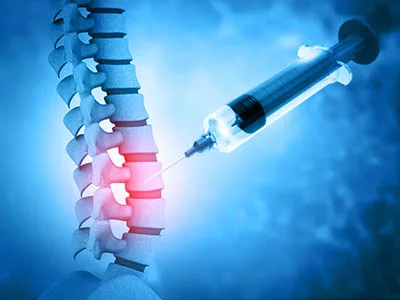
Inflammation, Medications, and Injections
Inflammation is the body's natural response to musculoskeletal injury, such as a sprain, strain, or fracture. It is characterized by redness, warmth, swelling, and pain at the site of injury. Inflammation is a complex process that involves the release of various chemicals, like cytokines and prostaglandins, which aid in repairing damaged tissues. While inflammation is generally beneficial in the healing process, prolonged or excessive inflammation can lead to chronic pain and tissue damage.
To suppress or reduce inflammation, people commonly resort to anti-inflammatory medications like nonsteroidal anti-inflammatory drugs (NSAIDs). Long-term use of these types of drugs can increase your risk for high blood pressure, stroke, or heart attack, and increase blood pressure.
Injections are another common method to suppress inflammation, particularly in cases of severe joint pain or chronic conditions like arthritis. Two common types of injections are corticosteroid injections and hyaluronic acid injections. However, it is essential to be cautious with their use, as they may have adverse effects on joint health.
Corticosteroid injections: These injections, also known as cortisone shots, help to reduce inflammation and provide short-term relief from pain. They work by suppressing the immune system's response, which can reduce inflammation and alleviate pain quickly. However, repeated use of corticosteroid injections can lead to several issues, including:
- Weakening of tendons and ligaments: Over time, corticosteroid injections can weaken the connective tissues in the joint, making them more susceptible to injury.
- Cartilage deterioration: Prolonged use of corticosteroid injections may cause the cartilage in the joint to break down, leading to joint instability and increased pain.
- Osteoporosis: Corticosteroids can decrease bone density, increasing the risk of fractures and osteoporosis.
- Infection: Injections can introduce bacteria into the joint, potentially leading to a joint infection.
Hyaluronic acid injections: Also known as viscosupplementation, these injections are used to treat osteoarthritis by replenishing the synovial fluid in the joint, which helps to cushion and lubricate the joint surfaces. While hyaluronic acid injections may offer some relief for patients with osteoarthritis, they are not without drawbacks:
- Temporary relief: Hyaluronic acid injections may provide temporary relief, but they do not address the underlying cause of joint inflammation and degeneration.
- Adverse reactions: Some patients may experience pain, swelling, or infection at the injection site.
- Ineffectiveness: In some cases, hyaluronic acid injections may not provide significant relief or improvement in joint function.
Suppressing inflammation, especially when overdone, can be detrimental to the healing process. Inflammation is necessary for tissue repair and regeneration. By suppressing it, the body's natural healing mechanisms may be disrupted, which could delay or impair recovery. Overuse of anti-inflammatory medications can also lead to unwanted side effects, such as gastrointestinal issues, cardiovascular risks, or weakened immune response. Instead of solely focusing on suppressing inflammation, a balanced approach that supports the body's natural healing process while managing symptoms is often recommended.
Physical therapy is the best way to resolve inflammation. In the next Blog Post we will discuss why physical therapists play such a crucial role in reducing or eliminating inflammation by changing the load or stress on a tissue through various techniques that improve motion. By addressing the underlying biomechanics and movement patterns, physical therapists can help alleviate inflammation and promote healing.
Follow our Blog here: https://www.thesuperiortherapy.com/blog/
For more info on the side-effects of NASAIDs an Injections: https://my.clevelandclinic.org/health/drugs/11086-non-steroidal-anti-inflammatory-medicines-nsaids and https://www.mayoclinic.org/tests-procedures/cortisone-shots/about/pac-20384794



